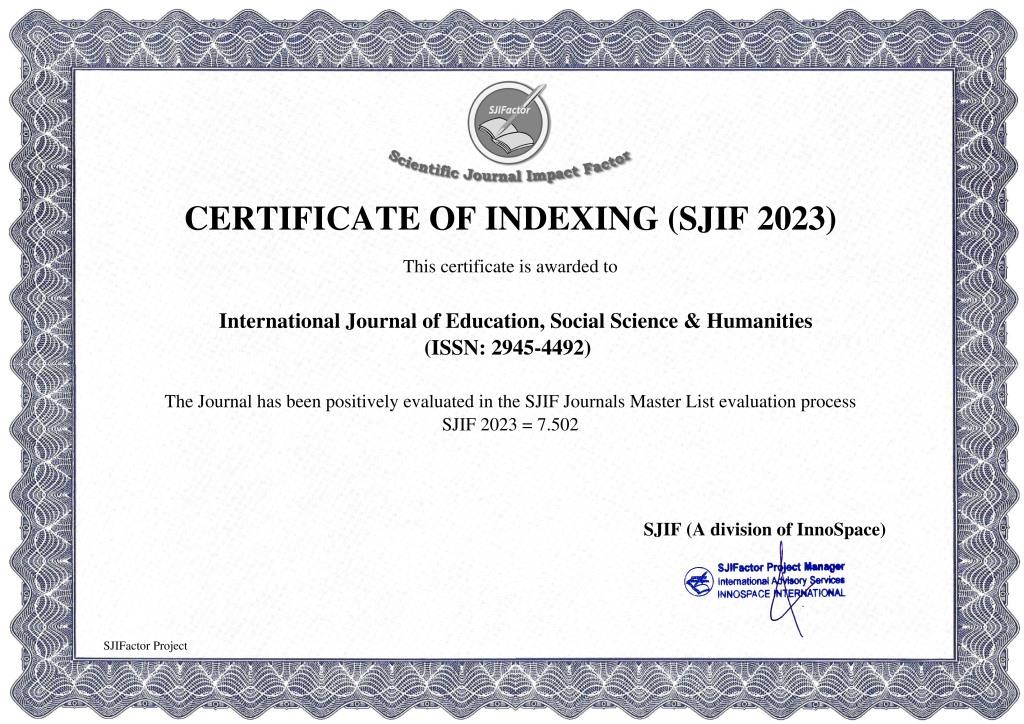THEORETICAL CONSIDERATIONS ON ENGLISH AND UZBEK PROVERBS
Keywords:
culture, equivalent of English and Uzbek languages, translation, paremiological units, translating techniques of proverbs, untranslatableAbstract
Idiomatic expressions, proverbs and sayings are closely connected with a particular nation’s culture and history. For this reason, they are hardly understood by other nations. This is one of the reasons causes some scholars have a point that those kinds of lexical items cannot be translated; however, other authors proposed different translation techniques to find solutions to this problem. This article analyzes particularly this problem. In conducting this research, comparative, contrastive, and content analyses were utilized. To test different scholars’ opposite views, nine English proverbs were randomly selected and translated into Uzbek. Descriptive analysis revealed that one out of nine proverbs could not be translated word-for-word.
References
Corpas Pastor, G. (2003): Diez años de investigaciónenfraseología: análisissintácticosemánticos, contrastivos y traductológicos. Madrid: Vervuert
Gorjian. B. (2006). Translating English proverbs into Persian: A case of comparative linguistics.
Kumar D. V. (September 2015).Translation of German Proverbs into Telugu: Issues in Translation. Chapter 2 History of Translation Studies. Doctor ofPhilosophy in Translation Studies
Lefevere, A. 1992. Translation, Rewriting, and the Manipulation of LiteraryFame. London & New York: Routledge.
Mieder, W. 2004. Proverbs: A Handbook. London: Greenwood Press.
Mirzayev T., Musoqulov A.& SarimsoqovB. (2005). O‘zbek xalq maqollari. «Sharq» nashriyot-matbaa aksiyadorlik korapaniyasi Bosh tahririyati
Newmark, P. 1988. A Textbook of Translation. London: Prentice Hall.
Nida, E. “Principles of Correspondence”. In Translation Studies Reader.Edited by Venuti, L. 2000. London: Routledge.
Xakimovna, U. X. (2019). Lexico-semantic group of the verb “to break” in modern english. Indonesian Journal of Innovation Studies, 8.
UMUROVA, X. Semantic Properties of the Terms of Wedding Ceremony Used in Bukhara Dialect. JournalNX, 6 (09), 58-62.
Yuldasheva, f. (2023). Xushmuomalalikning nutq odobida ifodalanishi. Центр научных публикаций (buxdu. uz), 33(33).
Akramov, I. (2021). THE SPECIAL SIGNS, PROPERTIES AND CHARACTERISTICS OF THE APHORISMS. CENTER FOR SCIENTIFIC PUBLICATIONS (buxdu. Uz), 5 (5).














